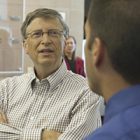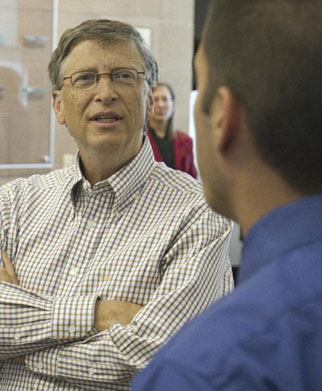“THE MINUTE YOU REALIZE that the people in my generation and above are doing just about everything with our positions of authority but solving your problems, the minute you stand up, like you stood up in 2008, and make history with literally just your feet marching into voting booths, the minute you stand back up again, we’re going to have a different country. And it’s critical you understand this.” –Van Jones, activist and author of The Green-Collar Economy, speaking to students in Edmunds Ballroom in January as part of the Pomona College Distinguish Speaker Series.
“THERE’S A TRUE SCHIZOPHRENIA where if you say to voters, you know, ‘Do you think the federal government spends too much money and they should spend less?’ They say, ‘Yeah, absolutely.’ Then you name specific things like Pell Grantsfor students and they say, ‘No, not that.’ How ‘bout NIH, medical research funding? ‘Nah, you really shouldn’t cut that.’ And pretty soon you prove that what the American public is against is arithmetic.” —Bill Gates, philanthropist and co-founder of Microsoft
“I’VE ALWAYS BEEN AN ADVOCATE of going out and registering, finding like-minded people and getting them ready to vote and getting that voting bloc together and that is the way we’re going to change it. You can make as many rallies as you want … you know, all the flag-waving and the rest. And that didn’t get us anything, did it?” –U.S. Congresswoman Loretta Sanchez of Orange County, Calif., speaking in March at a Cesar Chavez Day event in the Smith Campus Center.
“THE MEDIA IS LIKE … a dome that settles over this country. We’re isolated in the sense that the media is controlled by corporations, the advertising is the objective, making money and also controlling the information. And I think to get inside that is impossible on a good scale, on a big scale … It’s a roof. It’s like an Astrodome you can’t get through.” –Filmmaker Oliver Stone speaking in Rose Hills Theatre in February after a screening of his documentary South of the Border.

